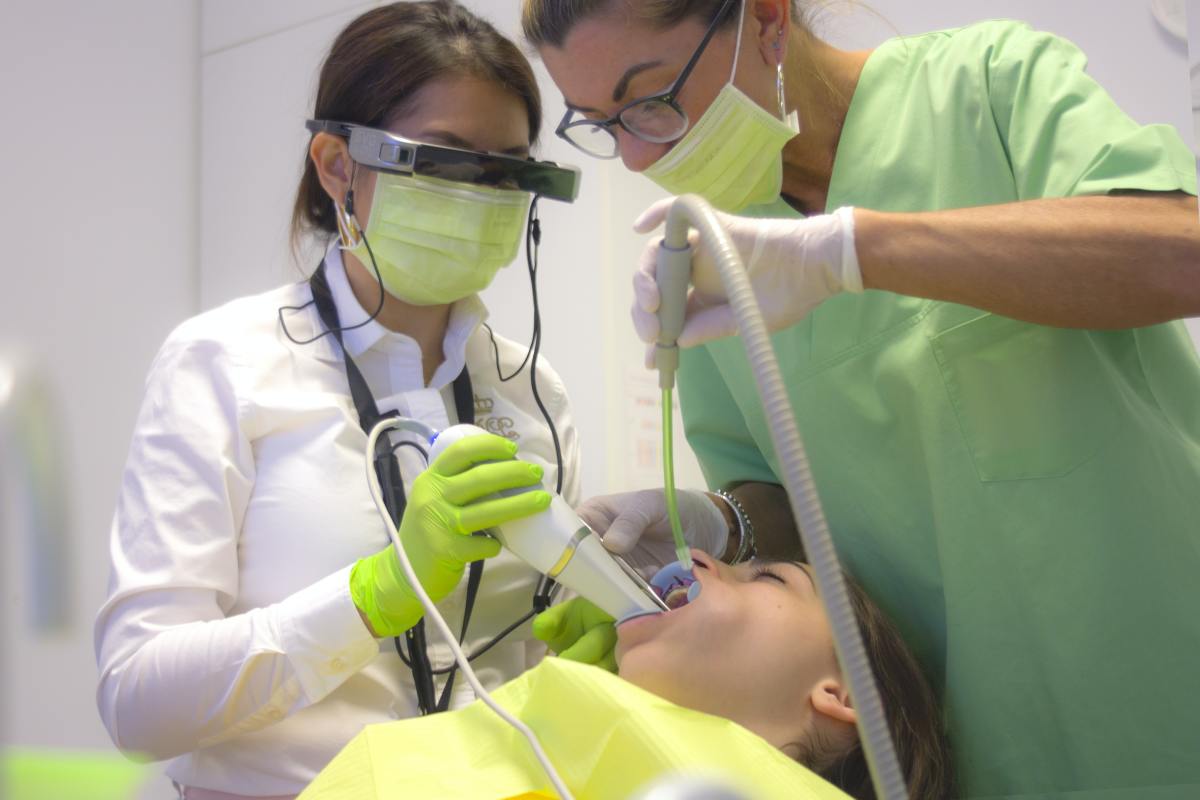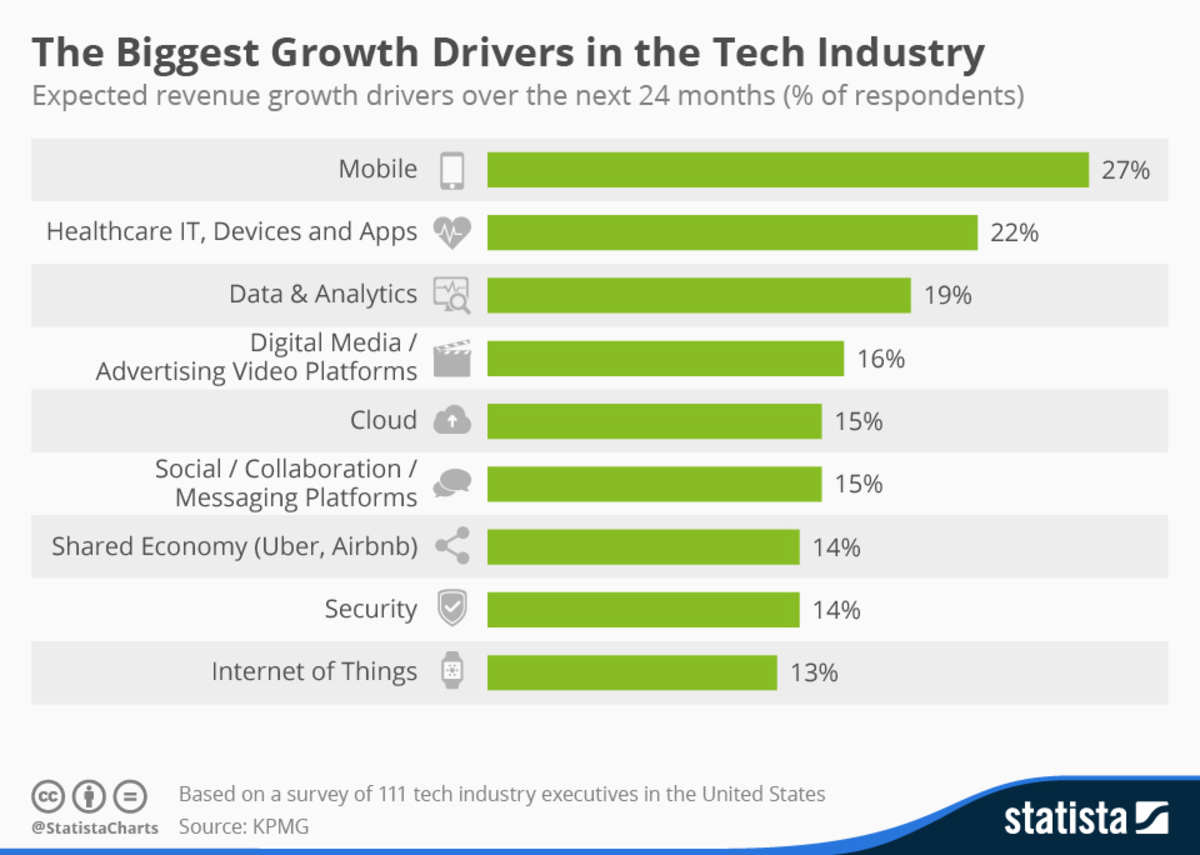Quang Tri Nguyen, via Unsplash From technology-aided diagnostics to immersive mental health care, medical tech has become one of the largest drivers in the current tech industry. One of the most recent additions to the future of healthcare tech, has been the introduction of immersive aids within the industry. From Augmented Reality glasses to Virtual Reality goggles, immersive tech has become the new talked about topic amongst healthcare professionals. With an ability to assist procedures, improve student training and transform all areas of the healthcare industry, immersive technology looks like it could be the key to the future of efficient medicine. Read on to find out which areas of the medical field are currently benefitting from immersive aids and why they are driving the future of digitalised healthcare.
What Is Immersive Technology?
Immersive technology aims to enhance the wonders of the real world. Made up of Augmented Reality (AR) and Virtual Reality (VR), immersive aids are able to digitalise our reality and add clever computerised layers over the top of real-time objects and environments. Statista Augmented reality plays on the traditional eyeglasses design, simply enhancing our surroundings. With the use of sensors and CGI, this clever piece of technology is able to overlay digital information onto the world around us. This has proven to become an asset for a number of industries, from healthcare to education and the corporate landscape. Using AR aids allows for the user to view multiple streams of information at once and see organised data in real-time, making it the perfect tool for diagnostic efficiency and clever training. Virtual reality on the other hand takes this one step further, using digital layers to completely immerse the user in an entirely new world. In doing this, users are able to transport themselves at a click of a finger, which isn’t only amazing for gaming fanatics, but also the medical field. From immersive exposure therapy for mental health patients to real-time surgical training that mimics the environment of realistic operations; this piece of tech is truly revolutionising the healthcare industry.
Breakthroughs and Product Development
As the medical field welcomes this technological breakthrough with open arms, a recent study revealed that over £5.1 Billion has currently been invested in immersive aids by the healthcare sector, making it the second-largest investor after video gaming and consumer entertainment. In fact, one of the first modern AR models to hit the market, Google Glass, has found its home within the healthcare field after failing to find success with consumers largely due to its high cost and unattractive design. Instead, the product is leading the way for new forms of diagnostic training and the future of digitalised medicine. The question is, just how effective is immersive technology in its path to digitalising the future of medical care? Read on to find out why experts are raving and where you might see it crop up on your next visit to the doctor.
Visual Health
Sight loss continues to be a widening global epidemic. In fact, statistics show that nearly 75% of the adult population currently needs at least one form of vision correction. As experts predict that this number will only rise, ophthalmology professionals are turning to new forms of treatment to battle visual impairment. Statista One of these solutions is virtual reality. Pioneers in vision aiding technology, the company GiveVision has developed a VR headset that enhances the vision of those who suffer from sight loss. With the aim being for patients to maximise their remaining sight, VR goggles allow visually impaired patients to view objects easily up close, and zoom in to larger distances. Using immersive technology within the ophthalmology field has allowed low vision patients to continue to live independently in spite of their condition, aiding all areas of daily life, from working and reading to entertainment.
Mental Health
Another area that has been transformed by the addition of immersive technology is the mental health field. As an area of medicine often forgotten about as technical advancements arise, VR is truly stealing the show for current mental health professionals. Used to aid the treatment of anxiety, PTSD and other related conditions, virtual reality is a revolutionising addition to exposure therapy. As stated by the American Psychological Association, exposure therapy can be defined as: “A psychologically generated safe environment in which psychologists “expose” individuals to the things they fear and avoid.” Virtual Reality adds a new dimension to the form of exposure therapy, thanks to its ability to fully immerse the consumer. Using VR to expose the patient to the situation that they fear and avoid aids the reduction of anxiety and decreases avoidance of similar real-life scenarios. As an immersive digital aid, VR allows a patient to become fully immersed within a computer-generated situation. The professional is then able to control the situation within a safe space, improving both the length and effectiveness of recovery.
Neurological Disorders
One of the fields benefitting largely from the introduction of immersive technology is neurology. The study of the brain is one of the most complicated areas of the entire body, but experts think they may have found success within virtual reality for the treatment of many neurological disorders. Jessica Lewis via Unsplash One of these is dementia. As a condition that is quickly spreading across the globe, the World Health Organisation estimates that over 75 million people will be diagnosed with the disease by 2030. While immersive technology cannot cure the disease, experts have found that VR and AR aids are continuing to improve the cognitive and emotional abilities of sufferers. In fact, some are calling it ‘Time Travelling Tech’ as VR experiences are able to take dementia patients back in time to a computerised version of the past where their cognitive memory remains stronger. Alongside this, caregivers are also benefitting from its success. Embodies Labs, a neurological study company, has created carer-focused simulations, designed to educate caregivers on the reality of the disorder, allowing them to gain a better understanding of what their loved ones are going through. This can be used within training for students and staff in order for them to understand the disease and connect more effectively with patients.
The Future Of Diagnostics & Training
The future of digitalised diagnostics and training looks bright. Healthcare experts have been quick to discover the rewards of AR/VR technologies. As the immersive industry continues to expand, education is at the forefront of its demand going forward. Healthcare experts are required to learn a large amount of important information about the structure of the body and its many functions. As immersive technology continues to make its way into the medical classroom, students will be able to view data in real-time, interact with 3D models of the body and complete lifelike surgical examinations through interactive VR goggles. The sky really is the limit for immersive technology. This might be the beginning of the future of digitalised healthcare, but it certainly won’t be the end.
References
How VR Is Helping Visually Impaired Patients Regain Close To Normal Levels Of SightA London-based startup has developed a wearable that enables visually impaired people to see up close and at a distance clearly.What Is Augmented Reality? | The Franklin InstituteAugmented reality (AR) is one of the biggest technology trends of 2017, and it’s only going to get bigger as AR ready smartphones and other devices become more accessible around the world.Virtual Reality DefinitionVirtual reality (VR) enables the creation of a simulated environment that our senses can come to believe is real.
This content is accurate and true to the best of the author’s knowledge and does not substitute for diagnosis, prognosis, treatment, prescription, and/or dietary advice from a licensed health professional. Drugs, supplements, and natural remedies may have dangerous side effects. If pregnant or nursing, consult with a qualified provider on an individual basis. Seek immediate help if you are experiencing a medical emergency.



